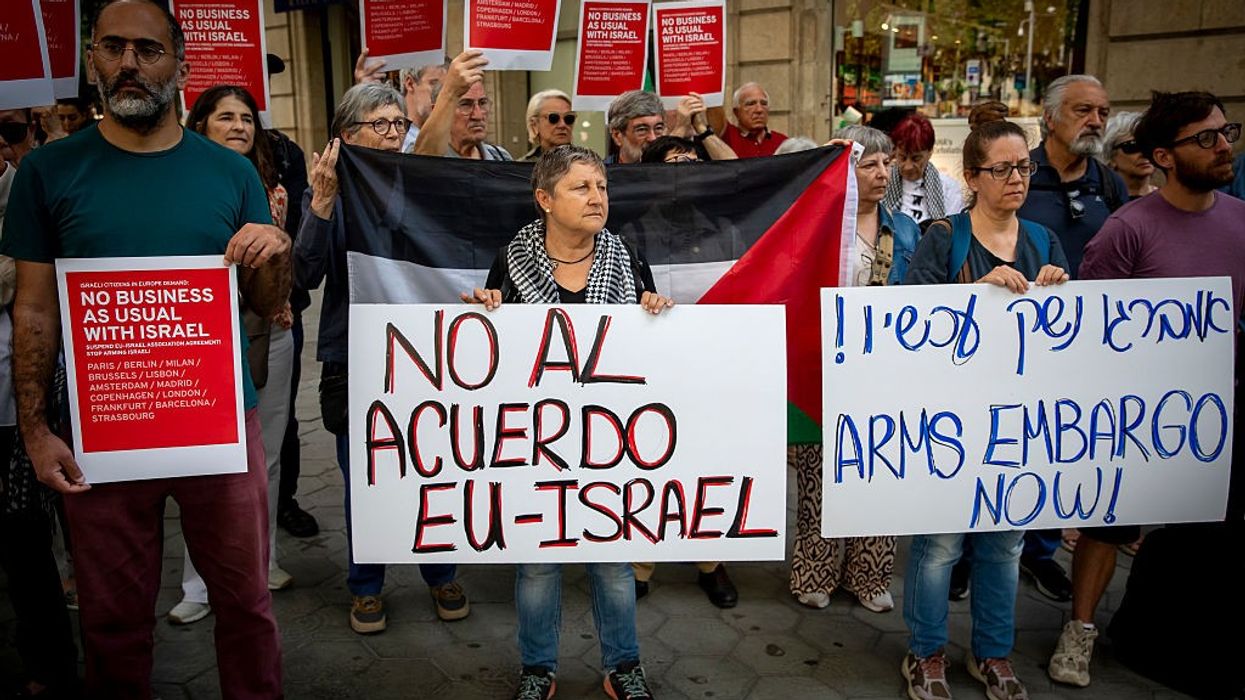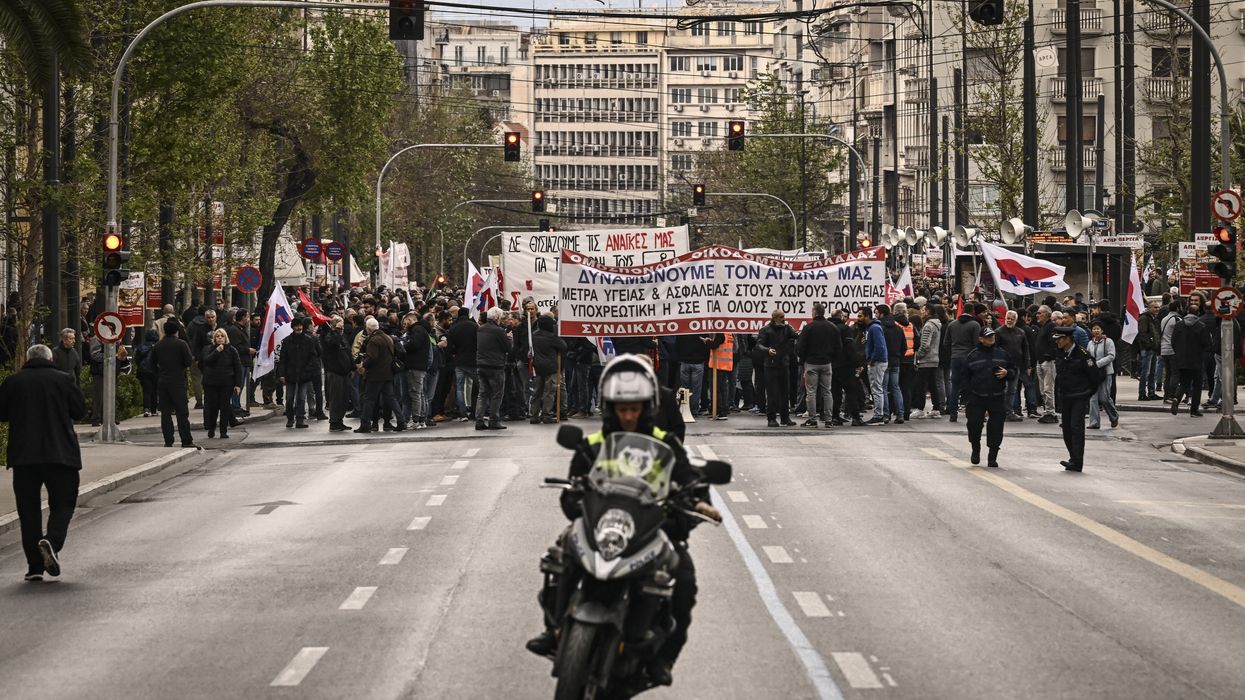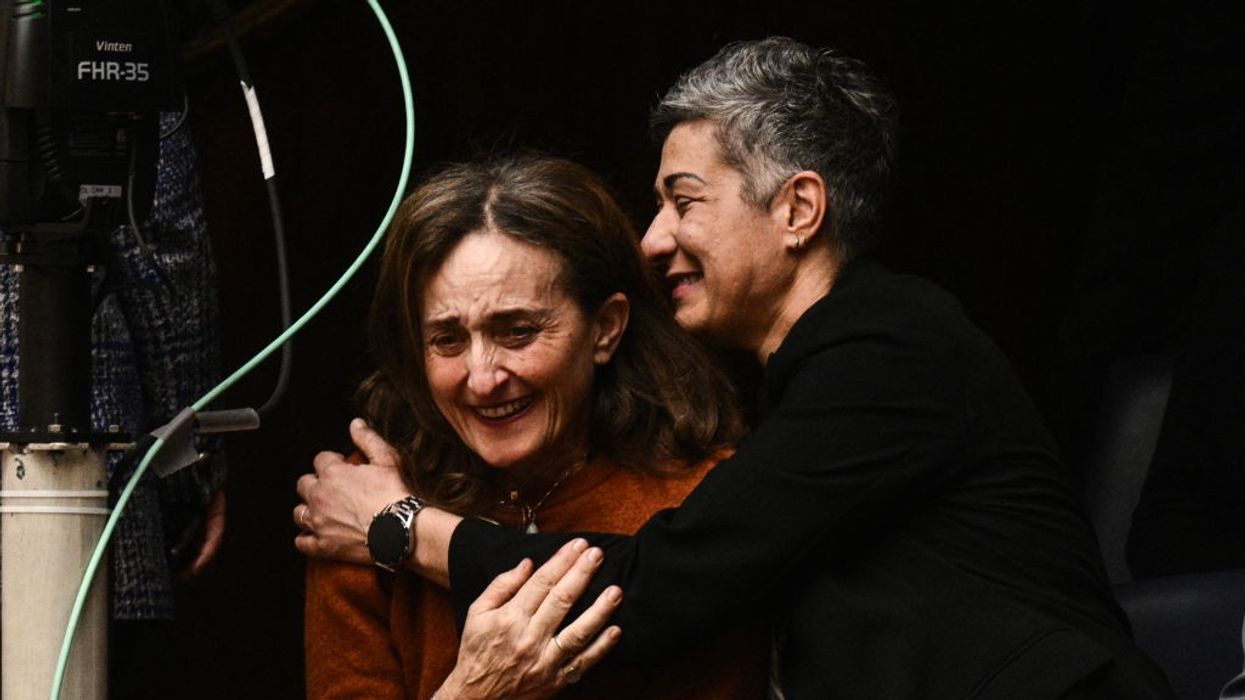Nearly two-thirds of Spanish respondents said they strongly support or support their government taking action "to reduce trade in weapons, fuel, and other relevant goods to pressure Israel to end its military actions in Gaza." In Greece, 63% back an embargo, while 35% oppose it. Sixty percent of Colombians, 58% of South Africans, and 48% of Brazilians strongly or somewhat support punitive sanctions on Israel.
Conversely, 27% of Brazilians said they do not support or strongly oppose an embargo on Israel, while 20% of South Africans, 14% of Colombians and Greeks, and 12% of Spaniards feel the same.
Support for ending or reducing weapons transfers was strong in all five nations, with 76% of Colombian respondents, 75% of Spaniards and Greeks, 66% of South Africans, and 59% of Brazilians favoring such action.
A majority of respondents in all five countries also said that companies providing arms, fuel, or heavy machinery to Israel "should be held responsible for how those products are used in Gaza."
"The people have spoken and they refuse to be complicit," Global Energy Embargo for Palestine campaigner Ana Sánchez said in a statement.
"Across continents, ordinary citizens demand an end to the fuel that powers settler colonialism, apartheid, and genocide," Sánchez added. "No state that claims to uphold democracy can justify maintaining energy, military, or economic ties with Israel while it commits a genocide in Palestine. This is not just about trade; it's about people's power to cut the supply lines of oppression."
The poll was published 670 days into Israel's U.S.-backed assault and siege on Gaza, which has left at least 226,600 Palestinians dead, maimed, or missing and hundreds of thousands more starving amid increasingly deadly famine as Israel blocks aid from entering the embattled enclave.
The far-right government of Israeli Prime Minister Benjamin Netanyahu—a fugitive from the International Criminal Court wanted for alleged crimes against humanity and war crimes in Gaza—is moving ahead with plans for the "full conquest," reoccupation, and ethnic cleansing of the strip, which U.S. President Donald Trump wants to transform into "the Riviera of the Middle East."
Israel's conduct in the war is the subject of an International Court of Justice genocide case brought by South Africa and supported by around two dozen nations. Among the countries in the survey, Colombia—which severed diplomatic ties with Israel in May 2024—Spain, and Brazil have formally joined or signaled their intent to join South Africa's case.
The ICJ also found last year that Israel's occupation of Palestine is an illegal form of apartheid.
"What the Israeli government is doing to the Palestinian people is not war, it is genocide," Brazilian President Luiz Inácio Lula da Silva said in February 2024 shortly after recalling his ambassador to Tel Aviv. "If this isn't genocide, I don't know what is."
On Thursday, European Commission Executive Vice President Teresa Ribera—who is Spanish—told Politico, "If it is not genocide, it looks very much like the definition used to express its meaning."
"What we are seeing is a concrete population being targeted, killed, and condemned to starve to death," Ribera said. "A concrete population is confined, with no homes—being destroyed—no food, water, or medicines—being forbidden to access—and subject to bombing and shooting even when they are trying to get humanitarian aid. Any humanity is absent, and no witness[es] are allowed."
Of the surveyed nations, all but Greece support an arms embargo on Israel. The other four countries took part in last month's Hague Group emergency ministerial conference in Colombia, which was organized by Progressive International and ended with the publication of a joint action plan for "coordinated diplomatic, legal, and economic measures to restrain Israel's assault on the occupied Palestinian territories and defend international law at large."
"The message from the peoples of the world is loud and clear: They want action to end the assault on Gaza—not just words," Progressive International co-general coordinator David Adler said in a statement accompanying the new survey's publication.
"Across continents, majorities are calling for their governments to halt arms sales and restrain Israel's occupation," Adler added. "That's why states are coming together through the Hague Group to take concrete measures toward accountability. It's time for others to follow their lead."
Meanwhile, a survey published Tuesday by the Israel Democracy Institute revealed that 8 in 10 Israeli Jews "are not so troubled or not at all troubled personally" by "the reports of famine and suffering among the Palestinian population in Gaza."
Eight people, including a child, starved to death in Gaza that day, on which local officials said that more than 80 Palestinians were killed by Israel's bombs, bullets, and blockade.




